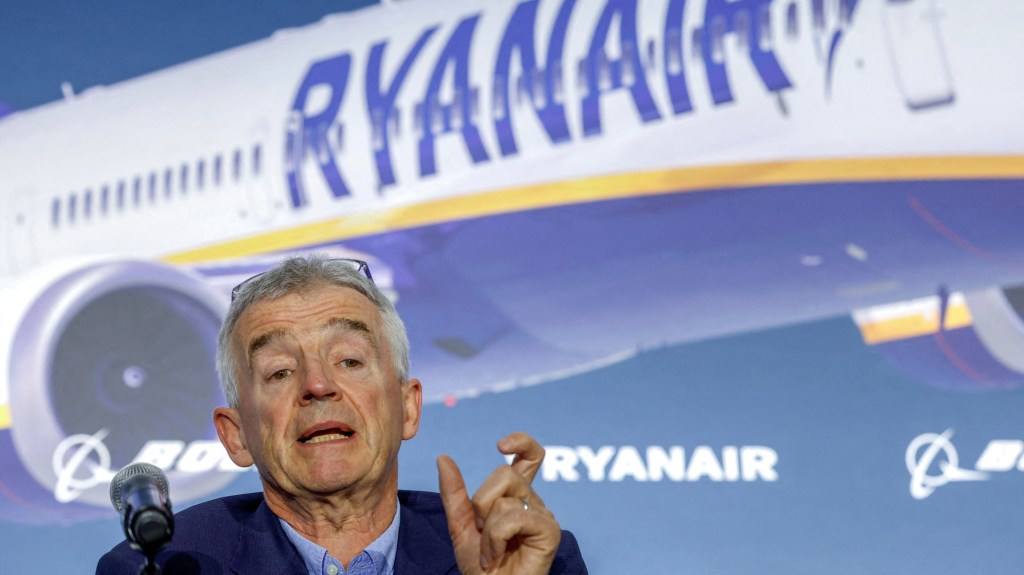Ryanair Reports Decrease in Profits as Travelers Seek Lower Airfare
Ryanair has faced a significant decline in profits during the peak summer season as travelers have become resistant to elevated fares. The airline acknowledged that it had been “over-scheduled, over-crewed, and over-costed” during this period.
Based in Dublin, Ryanair, the largest airline in Europe and a major competitor to easyJet for the title of the UK’s busiest carrier, revealed plans to reduce its anticipated passenger growth for the upcoming year. This adjustment is partly due to delays in the delivery of Boeing 737Max aircraft, stemming from ongoing operational and industrial challenges facing the manufacturer. While Ryanair still aims to carry up to 200 million passengers by next March, it has adjusted its passenger target for the following year from 215 million to 210 million.
In its financial results for the first half of the fiscal year, ending in September, Ryanair reported an 18 percent drop in after-tax profits, declining from €2.18 billion to €1.79 billion. Despite this, the airline’s revenues showed a slight increase, rising to €8.69 billion, aided by a 9 percent growth in passenger numbers to 115 million.
The data suggests that Ryanair’s passengers are hesitant to pay the higher fares implemented post-pandemic, which were a response to a surge in demand. The airline’s average fares during the peak months of July, August, and September were reduced by 7 percent, landing at €61.
CEO Michael O’Leary attributed this decline in fare acceptance to “consumer spending pressure driven by persistently high interest rates.” He also noted that ancillary revenue—income from services such as baggage fees, seat selection, and in-flight purchases—saw a small decrease, with average ancillary revenue per passenger dropping to just under €24.
Ryanair has taken delivery of 172 of the new Boeing 737Max aircraft ordered, which are designed to be larger and more fuel-efficient than previous models.
However, the airline cautioned that ongoing issues at Boeing are likely to impact future deliveries. Out of an additional 14 aircraft expected shortly, 9 have been postponed to the next quarter. Furthermore, Ryanair has nearly abandoned hopes of receiving 25 additional planes in time for the next summer peak.
“Frankly, it’s a pain in the backside,” O’Leary expressed. He emphasized the importance of moderating Ryanair’s growth projections to 210 million passengers for the fiscal year ending in March 2026, down from an earlier estimate of 215 million, to prevent a repeat of the operational challenges faced in summer 2024.
O’Leary stated that operating fewer planes than previously anticipated would help preserve the profitability per passenger.
Looking ahead, he believes demand remains robust for the current quarter, including the crucial Christmas season, mainly due to ongoing fare reductions.
Despite the profitability struggles, Ryanair’s financial position remains strong. Following a €1 billion share buyback in recent months, the company reported €600 million in net cash. Ryanair plans to distribute a €0.223 per share dividend at a total cost of €244 million, equating to nearly €10 million for O’Leary as a 3.9 percent shareholder.
On the Euronext exchange, Ryanair’s stock was stable on Monday, valued at €18 per share, recovering from a low of under €14 in the summer after a drop from over €21 in the spring.




Post Comment